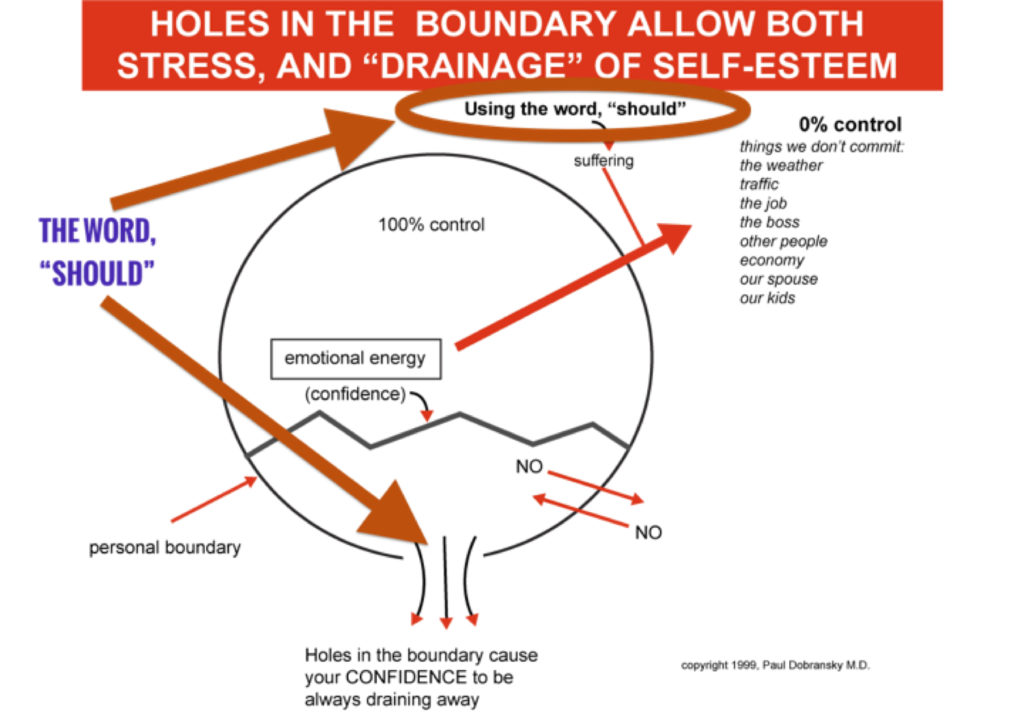Suffering has been used in a general way by people to denote an experience of negative emotion. However, in Romantic Dynamics, it is specific to an immature flaw of one's personal boundary, called a "boundary hole."
These "holes" are the "buttons" that people are said to push in us. They are the places where we are said to "have issues" or to be "oversensitive," or where people "get under our skin." They are places where we ought to realize the extent of our control over the world from what we do not control, what we own or possess from what we do not, and what is our business from what is not. When we overreach into other people's lives, or
When we overreach into other people's lives, or when we are overly impressionable and allow others to take advantage of us outside our awareness, we are dealing with a boundary hole. And it is through such holes that we suffer.
And so, "suffering" is defined as "trying to control the uncontrollable, by spending or wasting resources on such attempts at control." We do this without a strategy, without patience or other, conscious virtues of character that actually see us setting goals over time, which otherwise, really could help us gain more control over our world.
Suffering then leads us to lose many of our resources and have no other value back for spending them. We become less happy, less successful, we grow less or actually regress in psychological growth or maturity.
A common example would be being stuck in rush hour traffic. If one honks the horn, beats on the steering wheel and yells at other drivers, one is suffering, burning energy but not moving any faster to a goal. Instead of suffering, we ought to use, "intention," to get more control in life - which is a virtuous, mature way of strategizing, setting goals and pursuing them with conscious, wise resources and patience until we adjust our approach and actually reach the goal.
A large tip-off to the fact that one is suffering is when we use the word, "should," which implies that we wish for control over something that we do not have control over, and implies an unconscious entitlement to already having achieved that goal. Another version of this rests in problems using the word, "NO." Either saying it or hearing it is difficult. Not "taking NO for an answer" is part of suffering.
Fixing boundary holes and ending our suffering then consists in large part, through becoming facile and accepting of the word, "NO" in our lives, and not wasting energy on things we do not control, instead choosing to set intentions toward goals and achieving them like a more mature person with boundary doors instead of boundary holes.


